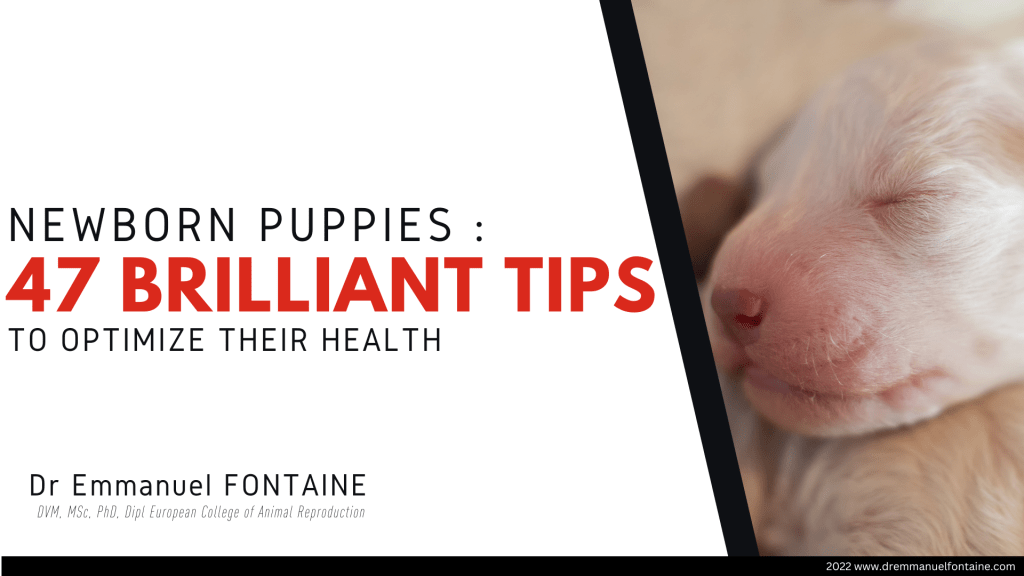This blog was first published in March 2016 and updated in Sept 2022
Just hung up with a client, we had an interesting discussion. I thought I should write it down as I assume his concerns are shared by many others.
He had questions on puppy milk replacers: why should he turn to these solutions instead of the goat milk he has always been recommended ?
In the following table, you can actually see the answer:

I created this table from various published scientific references, you can find them HERE if you are interested 🙂
As you can see here, goat milk and canine milks are not quite the same.
Among mammals, the milk of our companion animals is certainly the most energetic one encountered. And if their milk is so specific, it totally justifies the use of dedicated products.
I heard last year somebody saying that “puppies and kittens fed with commercial milk replacers do not grow as well as those fed with the bitch/queen‘s natural milk”.
Must admit I was really surprised: this is far from what I experience in practice when using dedicated products.
For sure, goat milk might have been a good alternative years ago when nothing else was available.
But now our specific solutions are much more adapted.
Why do I think breeders need to always have some milk replacer on hand?
Because when you breed dogs or cats, you need to be prepared to the unexpected.
There are plenty of situations where a milk replacer might be needed:
– No milk or not enough milk produced by the mother – especially when dealing with large litters): remember that the best way to monitor a newborn puppy’s health is to DAILY weight them !
– Puppy or kitten rejected by the mother: in these cases remember to take the temperature of the newborn first ! Because if it is below 34⁰C, digestion WILL NOT happen ! Warming it up in this case should always be the first step!
– Contaminated milk because of a mastitis.
– …
A recent study outlined that I quote “a low birth weight and a decrease of weight during the first 4 days of life appeared to be two main risk factors of neonatal mortality”.
This association could be explained by a “direct” competition between low and high birth weight puppies for an access to a functional teat during the first few days after birth and/or by an “indirect” competition in which puppies stimulate and drain their respective teats in a manner to increase milk production to the detriment of the other members of the litter.
The good news is that you can monitor this weight gain AND you can use dedicated milk replacers to fight this neonatal threat.
That’s definitely why I would encourage you to have some on hand.
Because again, when breeding, you MUST be prepared to face those unexpected situations each and every time you have a litter !
If you want to learn more about the use of milk replacers in newborn puppies, check this article I wrote HERE that contains much more details !

One of the most common challenge we encounter in breeding kennels is NEONATAL MORTALITY.
It can be very frustrating… even heart-breaking.
Good news though : you can do something about it !
We now have more knowledge than ever in this discipline.
In recent years, new research brought us a much better understanding of what can be done to optimize the health of newborn puppies.
By taking this course, this is what you will learn indeed !

2 thoughts on “[BLOG] Why goat milk is no more a valuable alternative for newborn puppies”